The Role of Waste Management in a Circular Economy
17 October 2023, By PLAEX Technologies
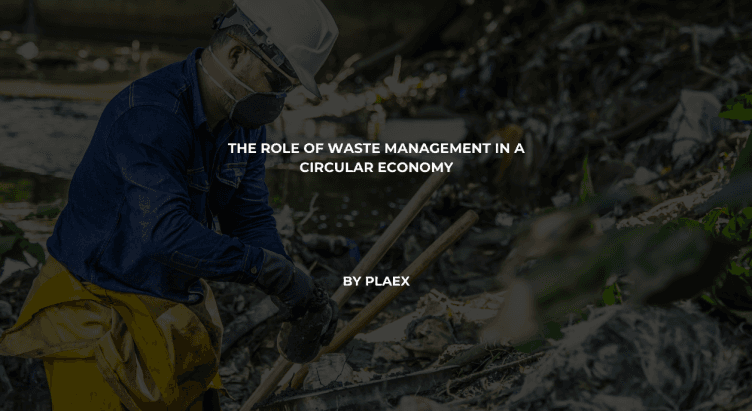
Experts agree that circularity is essential for sustainability. In order to eliminate waste and use resources to the fullest, we must implement a closed-loop system that makes the most of both renewable and non-renewable resources. In this, waste management is crucial.
Without circular waste management systems, a circular economy is not conceivable. We must reuse and recycle as much waste as we can to allow it to re-enter the economy rather than sit in a landfill or litter the environment. Waste management is essentially where we shut the loop.
Waste management is the final phase in the process of utilising materials as efficiently as possible, which is essential to a circular economy. A circular economy can only be realised through the implementation of circular waste management systems.
But what advantages are associated with a circular waste management system, and do they justify the transition to a circular economic paradigm?
In this newsletter article, we will explore the environmental benefits to circular waste management, economic benefits to circular waste management, how to implement circularity within waste management systems and how PLAEX Technologies promotes and creates a circular economy.
What are the Environmental Benefits to Circular Waste Management?
Before we start exploring the environmental benefits of waste management in a circular economy, it's essential to grasp the concept itself. A circular economy represents a revolutionary departure from the traditional linear economic model, which follows the "take-make-waste" pattern.

In a circular economy, resources are conserved and waste is minimised through strategies like recycling, reusing, and repurposing. It is a system designed to be regenerative and sustainable, prioritising the long-term well-being of our planet.
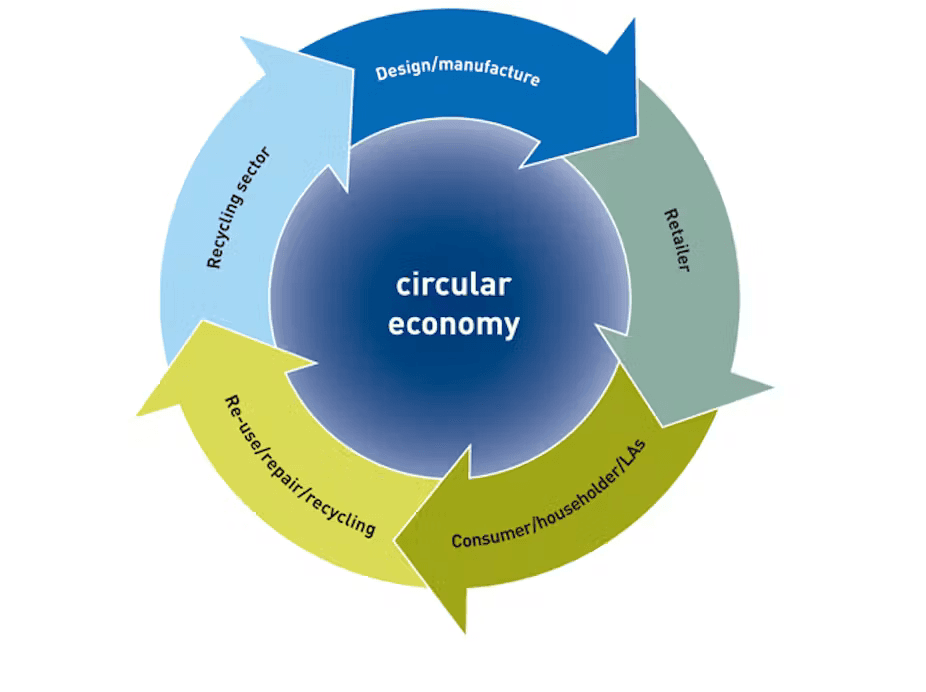
It may go without saying that implementing a circular waste management system has numerous positive effects on the environment. There is less need for new materials when resources are being reused. This is crucial when thinking about non-renewable resources. Due to the reason that these resources are limited, circularity encourages us to use them more sparingly.
Circularity reduces waste. In actuality, zero waste is the ultimate objective of circularity. Utilising all resources to the utmost extent is how this is accomplished. As much as possible, materials will be recycled or reused, and those that can no longer be recycled are turned into energy sources. There is no longer a need for landfills or other places where garbage is allowed to decay in a truly circular economy. Instead, it's put to the best possible use.
Circularity also lowers emissions. Since more resources are held within the economy, a circular system will reduce the need for imports of raw materials by countries.
Countries can balance out their waste production when garbage is managed in a circular fashion. By doing this, trash is transformed from a problem that pollutes our planet into a useful resource that enables communities and nations to live sustainably while saving money, protecting resources, and generating new businesses and jobs.
Contact us today to schedule your free consultation meeting and let's work together towards a cleaner, greener, and more circular waste management system.
What are the Economic Benefits to Circular Waste Management?

Sustainable development is described by the United Nations Brundtland Commission as "meeting the needs of the present without compromising the ability of future generations to meet their own needs."
According to that concept, sustainability methods must also foster economic development and guarantee that future generations can live in peace and with a high standard of living. The good news is that circular waste management has numerous economic advantages in addition to being beneficial for the environment.
A circular waste management system could lead to the development of new industries and jobs. In fact, just in Australia, the prospects from this kind of system are thought to be worth up to $4.5 trillion in terms of commerce. Sorting, recycling facilities, and creative material use are all necessary components of this type of system, which offers a wealth of chances for employees and business owners.
Utilising resources more effectively also enables nations and communities to maintain materials within their own economies. This is particularly crucial for areas with limited local resources. They can reuse and recycle their own materials thanks to a circular system, which reduces their dependency on other nations and organisations to supply those resources.
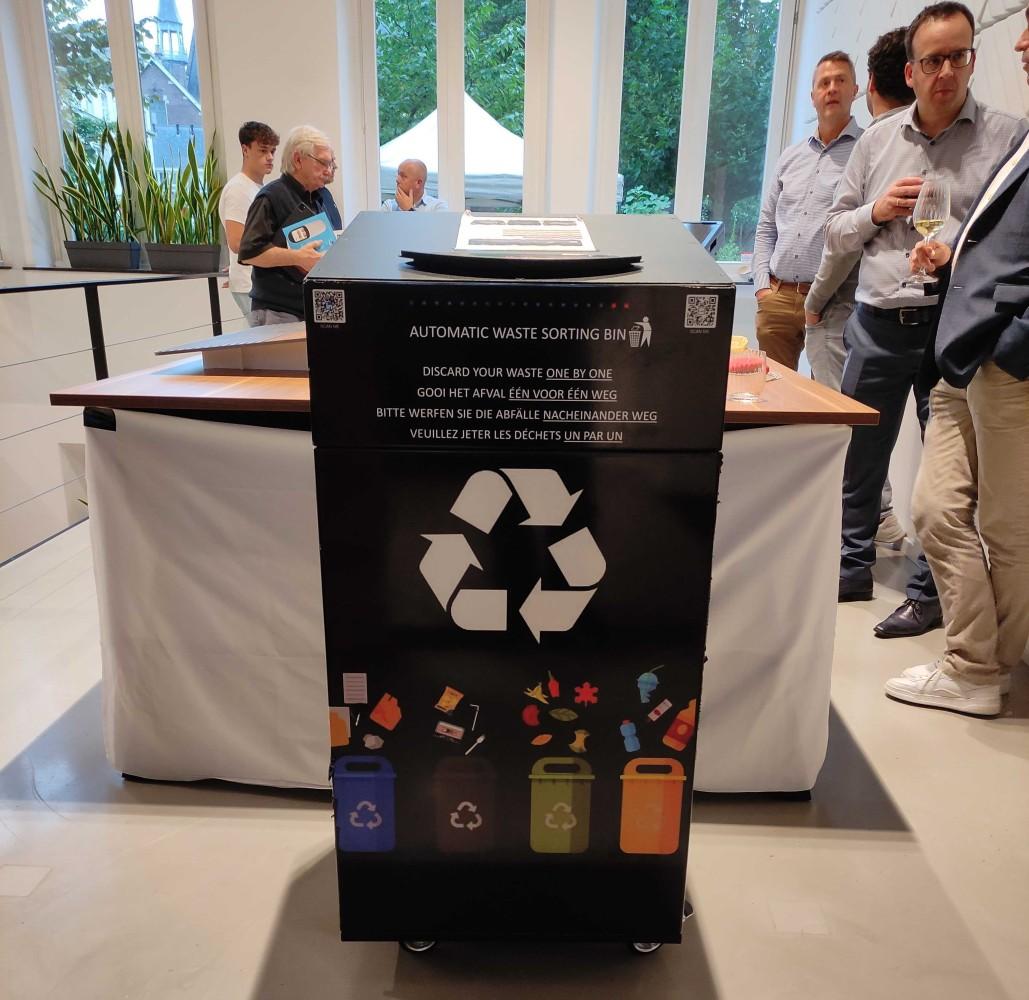
Garby, our AI smart garbage bin, delivers significant economic benefits while promoting circular waste management. Through utilising advanced artificial intelligence and machine learning algorithms, Garby ensures efficient waste sorting and segregation, reducing the costs associated with manual waste management processes.
With our smart bin's intelligent waste sorting capabilities, Garby maximises the potential for recycling and reuse, contributing to a circular economy where resources are conserved and waste is minimised. This allows businesses to achieve cost savings, enhance their environmental reputation, and support the transition towards a circular waste management system by optimising waste management operations and promoting sustainable practice.
We help businesses streamline their waste management and contribute to the circular economy. Book a free consultation with us today and let our experts in sustainability and circularity guide you towards contributing towards a greener environment and simultaneously save costs for your business.
How to Implement Circularity Within Waste Management Systems?
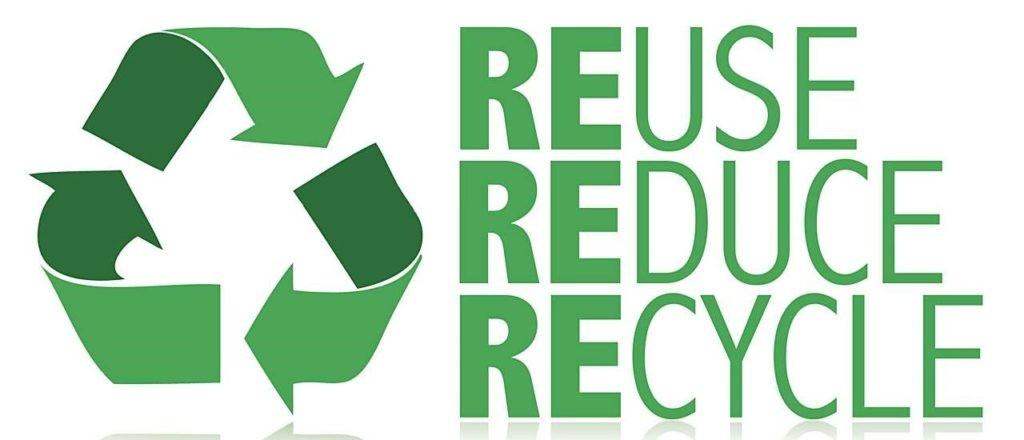
The key to circularity is the three R's of sustainability: reduce, reuse, recycle.
Per the waste hierarchy, ideally, we would be working toward avoiding waste at all costs (which falls under the reduced part of the three R's).
However, we already know that some production of materials is needed in order to maintain a healthy economy. Circularity comes in when we begin reusing and recycling these materials as much as we can.
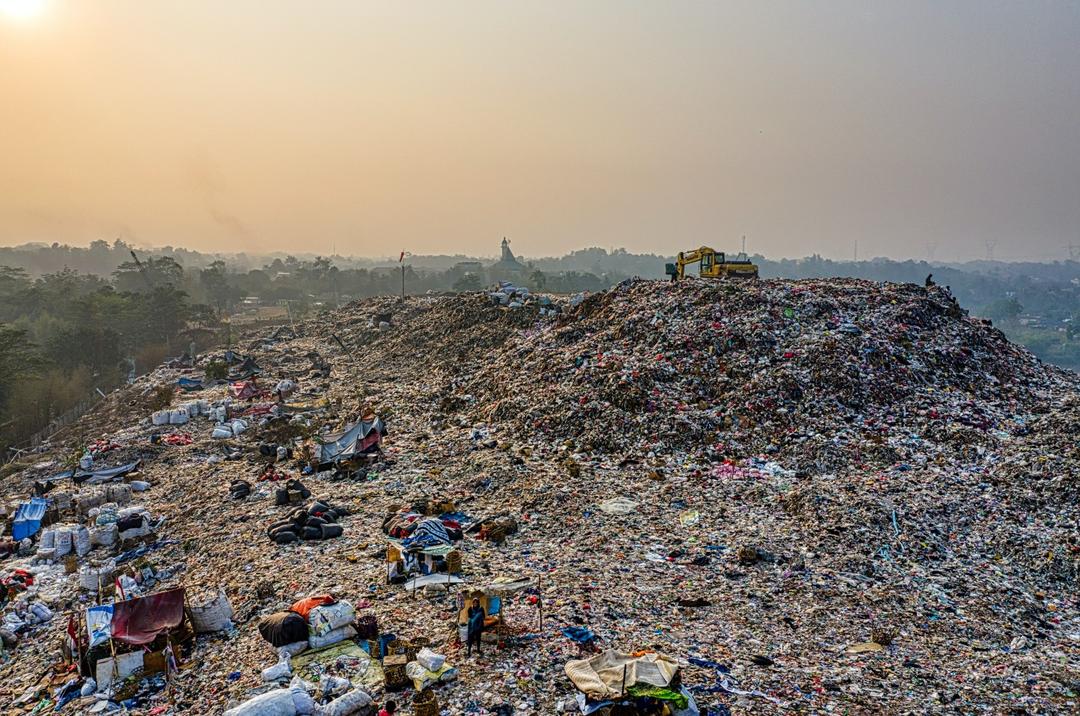
Individuals do have a role in waste management, but they are not the top producers of waste, as only 8.3% of the total waste produced in the EU came from households in 2014. This shows that, although circularity should be a universal goal, the key players are law makers and producers.
According to EPR (Extended Producer Responsibility), producers should be given responsibility for nearly all of the waste produced in the EU. Producers must therefore start making adjustments now to get ready for EPR regulations that will force them to adopt more circular waste management solutions.
Reducing landfill usage in favour of recycling, reusing, or, if materials have reached the limit of their usefulness, transforming them into energy, are the first steps toward circularity.
All aspects of waste production must be taken into consideration, starting with the removal of raw materials (whether by mining, harvesting, etc.), followed by product manufacturing and end material use.
Your business can use systems like our smart waste management technologies and ethical plastic waste management systems as they convert to a circular business model. Book a free consultation meeting with our sustainability specialists to find out more.
How PLAEX Technologies Promotes and Creates a Circular Economy?
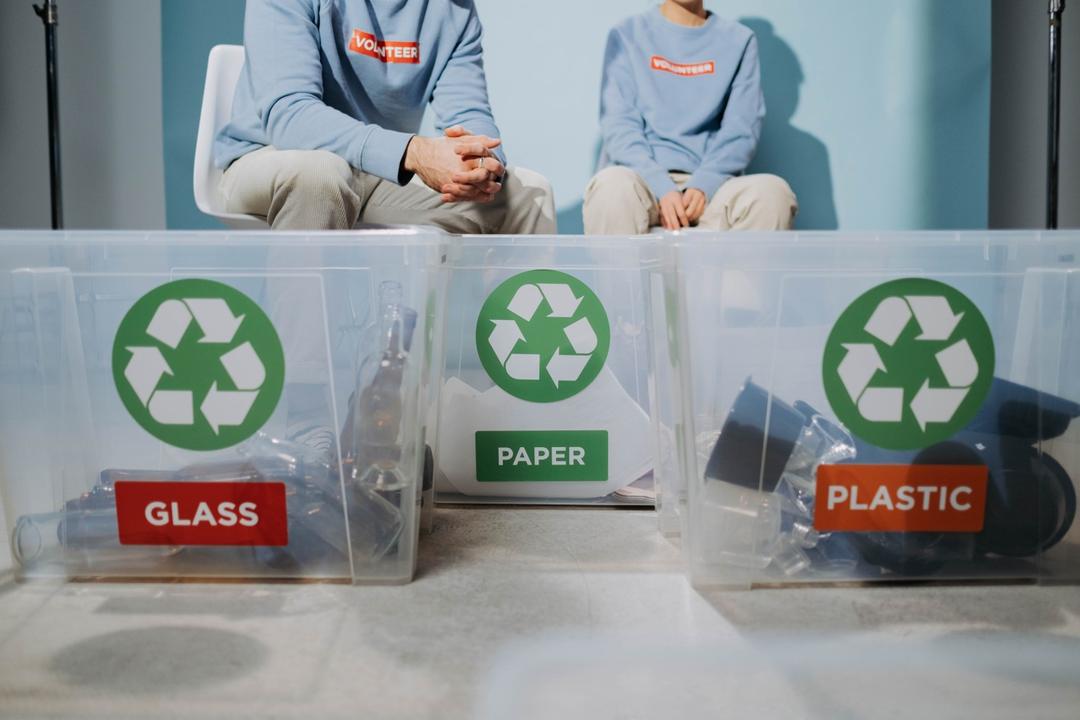
At PLAEX Technologies, we are committed to promoting and creating a circular economy through our innovative solutions and forward-thinking approach to waste management.
We recognize the need to shift from a linear "take-make-dispose" model to one that emphasises resource conservation, waste reduction, and sustainable practices. Here's how we contribute to the circular economy.
Our flagship product, Garby, is a prime example of how we integrate advanced technology to optimise waste management processes. With its AI-powered sorting capabilities, Garby maximises recycling rates, reducing the amount of waste that goes to landfills.
Through our smart waste management solutions, we enable businesses to effectively utilise resources by identifying and segregating valuable materials. By extracting the full potential of recyclable materials, we minimise the need for virgin resources, reducing the strain on the environment and promoting a more sustainable use of resources.
As a technology-driven company, we prioritise sustainable product design. We aim to create products that are durable, easily repairable, and designed for disassembly to facilitate recycling and reusing at the end of their lifecycle.
Join us in embracing the circular economy and making a positive impact on the environment and contact us today to explore how we can collaborate towards a more sustainable future.
Final Thoughts:
Transitioning to a circular economy is crucial for addressing the pressing environmental challenges we face today.
Embracing a circular economy not only benefits the environment but also presents economic opportunities and promotes sustainable development.
Let's build a circular economy that ensures a prosperous and resilient planet for generations to come. Contact us today to explore how we can collaborate and create a positive impact together.
FAQs (Frequently Asked Questions)
How does Garby contribute to a circular waste management system?
Garby, our AI-powered smart waste bin, plays a crucial role in promoting circular waste management. With its advanced sorting capabilities, Garby segregates waste into different categories, maximising the potential for recycling and reusing materials.
What are the economic benefits of adopting a circular waste management system?
Implementing a circular waste management system has numerous economic advantages. It can lead to the development of new industries and job opportunities, as well as generate substantial cost savings through efficient waste sorting and segregation.
How can PLAEX Technologies help businesses transition to a circular waste management system?
At PLAEX Technologies, we specialise in providing innovative solutions for waste management. Our team can guide businesses in optimising their waste management operations, implementing smart waste management technologies like Garby, and promoting sustainable practices.